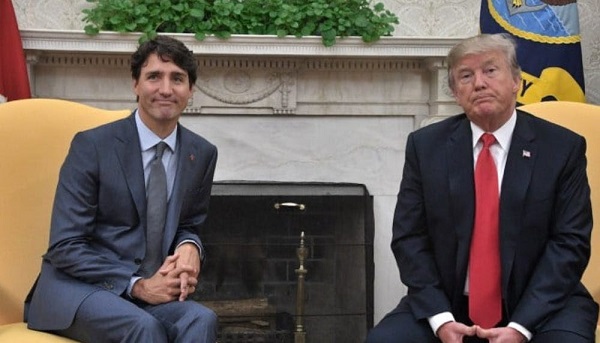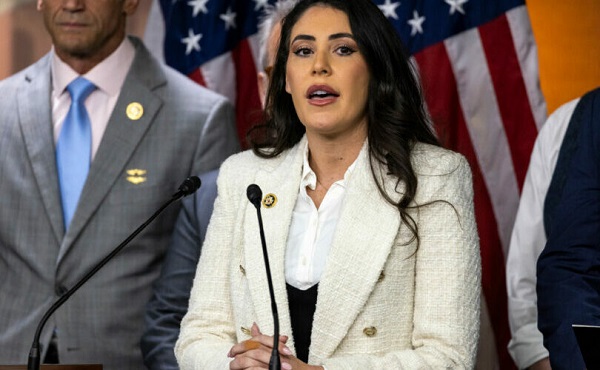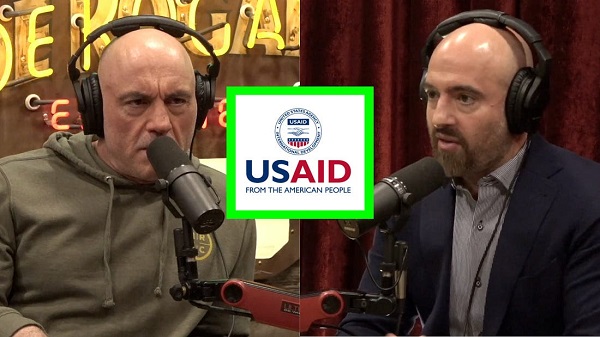International
Mexico to reform constitution after Trump designates cartels as terrorist organizations
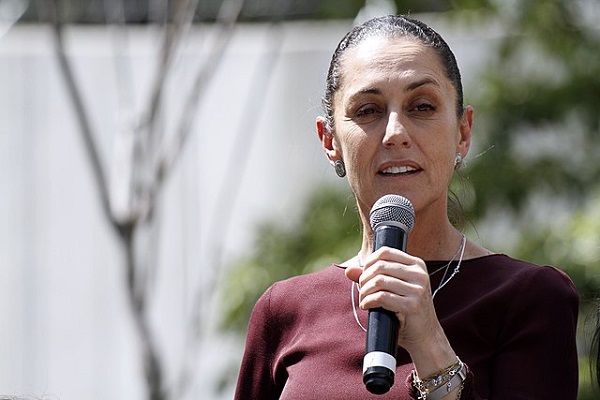
 MxM News
MxM News
Quick Hit:
Mexican President Claudia Sheinbaum announced plans to propose constitutional reforms following U.S. President Donald Trump’s designation of six Mexican drug cartels as foreign terrorist organizations.
Key Details:
- The U.S. designation targets six Mexican drug cartels as foreign terrorist organizations, published in the Federal Register on Thursday.
- Sheinbaum’s proposed reforms would protect Mexico’s sovereignty and limit foreign agents’ operations within the country.
- The reforms would also impose severe penalties on foreigners involved in gun trafficking, addressing Mexico’s longstanding demand for stricter U.S. gun control measures.
Diving Deeper:
Mexican President Claudia Sheinbaum revealed plans to propose constitutional reforms in response to the Trump administration’s recent designation of six Mexican drug cartels as foreign terrorist organizations. The U.S. action, announced on Thursday, has raised concerns in Mexico about potential military intervention on its soil, an idea Mexico strongly opposes.
“The Mexican people will not accept under any circumstances interventions, interference or any other act from abroad that could be harmful to the integrity, independence and sovereignty of the nation,” Sheinbaum asserted during her daily press briefing. She emphasized that Mexico would not allow outside involvement in investigations or prosecutions without authorization and collaboration from the Mexican government.
The U.S. designations are part of a broader effort to increase pressure on the cartels by treating them similarly to groups with political motives rather than purely economic interests. The decision follows a Jan. 20 executive order by President Donald Trump, aiming to curb cartel operations that contribute to violence and instability in the region.
Sheinbaum’s proposal seeks to solidify existing restrictions on foreign agents operating in Mexico, which were first introduced by her predecessor, former President Andrés Manuel López Obrador. Those laws limited the independence of foreign agents, requiring Mexican authorities to be informed of their movements. By enshrining these restrictions in the constitution, Sheinbaum aims to further safeguard Mexico’s sovereignty.
Additionally, Sheinbaum plans to introduce severe penalties for foreigners involved in gun trafficking, a longstanding issue in U.S.-Mexico relations. Mexico has repeatedly called on the U.S. to do more to prevent the flow of firearms from American gun shops and manufacturers into Mexico. With majorities in both chambers of Congress, Sheinbaum’s Morena party and its allies are well-positioned to pass the proposed constitutional amendments.
“What we want to make clear in the face of this designation is that we do not negotiate sovereignty,” Sheinbaum said, signaling her firm stance against any potential foreign military action on Mexican territory. As the situation develops, the proposed reforms are likely to shape Mexico’s domestic and international policy landscape, especially in its ongoing relationship with the U.S. under President Trump’s administration.
Business
DOJ drops Biden-era discrimination lawsuit against Elon Musk’s SpaceX
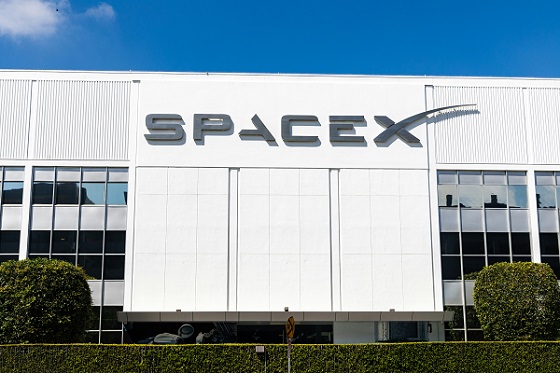
 MxM News
MxM News
Quick Hit:
The Justice Department has withdrawn a discrimination lawsuit against Elon Musk’s SpaceX that was filed during the Biden administration. The lawsuit accused SpaceX of discriminatory hiring practices against asylum seekers and refugees. The move follows ongoing cost-cutting measures led by Musk as the head of the Department of Government Efficiency under the 47th President Donald Trump’s administration.
Key Details:
-
The DOJ filed an unopposed motion in Texas federal court to lift a stay on the case, signaling its intent to formally dismiss the lawsuit.
-
The lawsuit, filed in 2023, alleged SpaceX required job applicants to be U.S. citizens or permanent residents, a restriction prosecutors argued was unlawful for many positions.
-
Elon Musk criticized the lawsuit as politically motivated, asserting that SpaceX was advised hiring non-permanent residents would violate international arms trafficking laws.
Diving Deeper:
The Justice Department, led by Attorney General Pam Bondi, has moved to drop the discrimination lawsuit against SpaceX, marking another reversal of Biden-era legal actions. The case, initiated in 2023, accused SpaceX of discriminating against asylum seekers and refugees by requiring job applicants to be U.S. citizens or permanent residents. Prosecutors claimed the hiring policy unlawfully discouraged qualified candidates from applying.
The DOJ’s decision to withdraw the case follows a judge’s earlier skepticism about the department’s authority to pursue the claims. No official reason for the withdrawal was provided, and neither Musk, SpaceX, nor the DOJ have issued public statements on the development.
Elon Musk was outspoken in his criticism of the lawsuit, labeling it as a politically motivated attack. Musk argued that SpaceX was repeatedly informed that hiring non-permanent residents would violate international arms trafficking laws, exposing the company to potential criminal penalties. He accused the Biden-era DOJ of weaponizing the case for political purposes.
The decision to drop the lawsuit coincides with Musk’s growing influence within the Trump administration, where he leads the Department of Government Efficiency (DOGE). Under his leadership, DOGE has implemented aggressive cost-cutting measures across federal agencies, including agencies that previously investigated SpaceX. The Federal Aviation Administration (FAA), which proposed fining SpaceX $633,000 for license violations in 2023, is currently under review by DOGE officials embedded within the agency.
Meanwhile, SpaceX’s regulatory challenges appear to be easing. A Texas-based environmental group recently dropped a separate lawsuit accusing the company of water pollution at its launch site near Brownsville. The withdrawal of the DOJ lawsuit signals a significant victory for Musk as he continues to navigate regulatory scrutiny while advancing his business ventures under the Trump administration.
Business
PepsiCo joins growing list of companies tweaking DEI policies

 MxM News
MxM News
Quick Hit:
PepsiCo is the latest major U.S. company to adjust its diversity, equity, and inclusion (DEI) policies as 47th President Donald Trump continues his campaign to end DEI practices across the federal government and private sector. The company is shifting away from workforce representation goals and repurposing its DEI leadership, signaling a broader trend among American corporations.
Key Details:
-
PepsiCo will end DEI workforce representation goals and transition its chief DEI officer to focus on associate engagement and leadership development.
-
The company is introducing a new “Inclusion for Growth” strategy as its five-year DEI plan concludes.
-
PepsiCo joins other corporations, including Target and Alphabet-owned Google, in reconsidering DEI policies following Trump’s call to end “illegal DEI discrimination and preferences.”
Diving Deeper:
PepsiCo has announced significant changes to its DEI initiatives, aligning with a growing movement among U.S. companies to revisit diversity policies amid political pressure. According to an internal memo, the snacks and beverages giant will no longer pursue DEI workforce representation goals. Instead, its chief DEI officer will transition to a broader role that focuses on associate engagement and leadership development. This shift is part of PepsiCo’s new “Inclusion for Growth” strategy, set to replace its expiring five-year DEI plan.
The company’s decision to reevaluate its DEI policies comes as President Donald Trump continues his push against DEI practices, urging private companies to eliminate what he calls “illegal DEI discrimination and preferences.” Trump has also directed federal agencies to terminate DEI programs and has warned that academic institutions could face federal funding cuts if they continue with such policies.
PepsiCo is not alone in its reassessment. Other major corporations, including Target and Google, have also modified or are considering changes to their DEI programs. This trend reflects a broader corporate response to the evolving political landscape surrounding DEI initiatives.
Additionally, PepsiCo is expanding its supplier base by broadening opportunities for all small businesses to participate, regardless of demographic categories. The company will also discontinue participation in single demographic category surveys, further signaling its shift in approach to DEI.
As companies like PepsiCo navigate these changes, the debate over the future of DEI in corporate America continues. With Trump leading a campaign against these practices, more companies may follow suit in reevaluating their DEI strategies.
-

 Bruce Dowbiggin2 days ago
Bruce Dowbiggin2 days agoWith Carney On Horizon This Is No Time For Poilievre To Soften His Message
-

 COVID-192 days ago
COVID-192 days agoRed Deer Freedom Convoy protestor Pat King given 3 months of house arrest
-

 Media2 days ago
Media2 days agoMatt Walsh: CBS pushes dangerous free speech narrative, suggests it led to the Holocaust
-
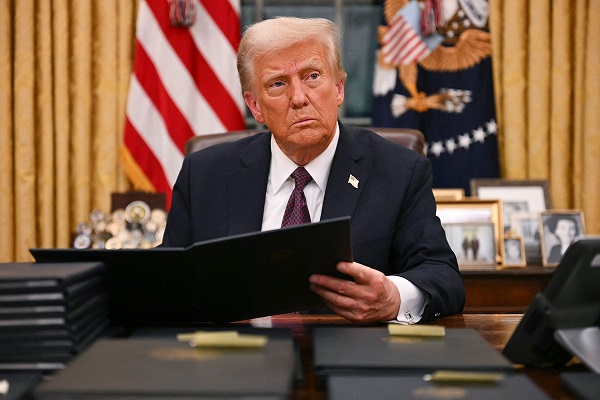
 illegal immigration2 days ago
illegal immigration2 days agoTrump signs executive order cutting off taxpayer-funded benefits for illegal aliens
-
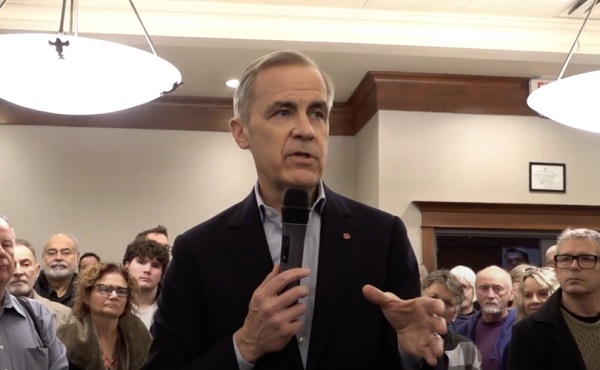
 Carbon Tax1 day ago
Carbon Tax1 day agoMark Carney has history of supporting CBDCs, endorsed Freedom Convoy crackdown
-

 Censorship Industrial Complex1 day ago
Censorship Industrial Complex1 day agoBipartisan US Coalition Finally Tells Europe, and the FBI, to Shove It
-

 Business18 hours ago
Business18 hours agoArgentina’s Javier Milei gives Elon Musk chainsaw
-

 International2 days ago
International2 days agoSenate votes to confirm Kash Patel as Trump’s FBI director


